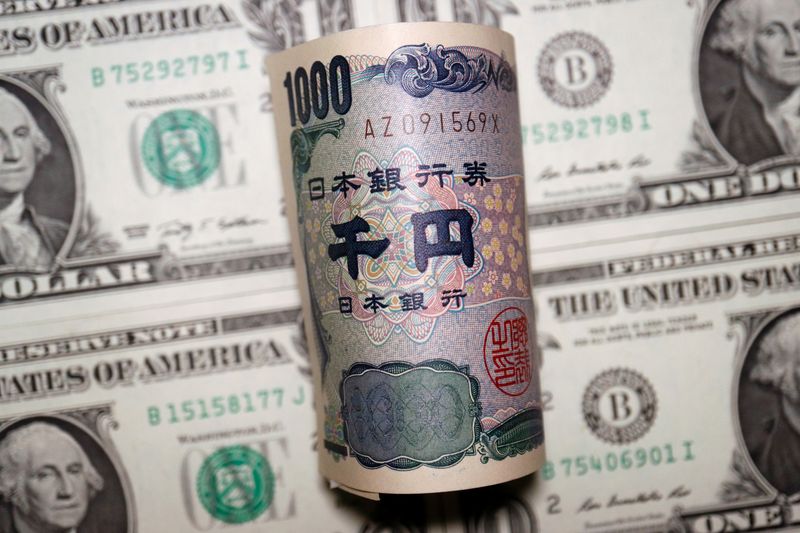By Ambar Warrick
Investing.com-- Most Asian currencies moved little on Monday as caution kicked in ahead of key U.S. inflation data due this week, while the euro extended its rally on expectations of more sharp interest rate hikes by the European Central Bank.
The Japanese yen rose 0.1%, while the South Korean won added 0.2%. Pressure on most Asian currencies eased after the dollar fell further from a 20-year high hit last week. But a market holiday in China and Hong Kong kept regional trading volumes depressed.
The dollar index sank 0.4% to 108.61, while dollar index futures also fell in a similar range. The greenback was subject to profit-taking as investors unwound some long bets after a month of strong gains.
Strength in the euro, which jumped 0.5% on Monday, also weighed on the greenback, as investors priced in more steep interest rate hikes by the European Central Bank this year. The bank hiked rates by a record 75 basis points last week, as it struggles to combat previously unseen levels of inflation.
The main point of focus this week is U.S. consumer price inflation data due on Tuesday, which is largely expected to dictate the path of the dollar in the near term.
Markets are expecting inflation to retreat further from highs hit earlier this year, helped largely by easing fuel prices. But the reading is still expected to be well above the Federal Reserve’s annual target of 2%.
The central bank has indicated repeatedly that it will keep raising interest rates sharply until inflation shows clear signs of reaching its target. Markets are pricing in an over 90% chance of a 75 basis point hike by the Fed next week.
Strength in the dollar, and a narrowing gap between Asian and U.S. lending rates saw most regional currencies drop sharply against the greenback this year.
The Japanese yen was among the worst hit by this, dropping to levels last seen during the Asian financial crisis in 1998. The Bank of Japan’s reluctance to raise interest rates is also a key factor in the yen’s weakness.
Weakness in the yen drew renewed calls from government officials to intervene in currency markets, although no such measures have been outlined so far.
Sentiment towards Asian markets was also somewhat dented by a Reuters report that the U.S. intends to place more curbs on technology exports to China. The move could draw retaliation from Beijing, sparking another trade war between the two countries.
The Thai baht fell the most among Southeast Asian currencies, losing 0.3%.
